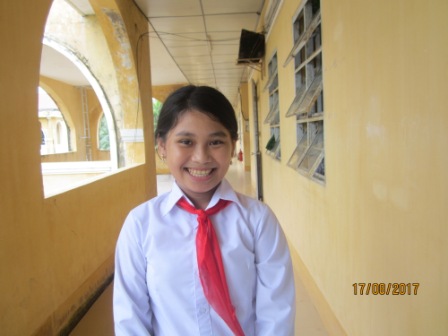Sharing Knowledge to Overcome Challenges in Livelihood Models
Within the past year, through the Enhancing Capacity in Community-Based Climate-Change Adaptive Livelihoods project, a partnership between saigonchildren and the Ánh Dương Centre, funded by MiTek, we have carried out many activities to support dozens of disadvantaged households in Long Mỹ District, Hậu Giang Province. One of the most notable initiatives has been providing funding for households to implement climate-change adaptive livelihood models, alongside regular technical guidance to help them apply these models more effectively and improve their economic outcomes.
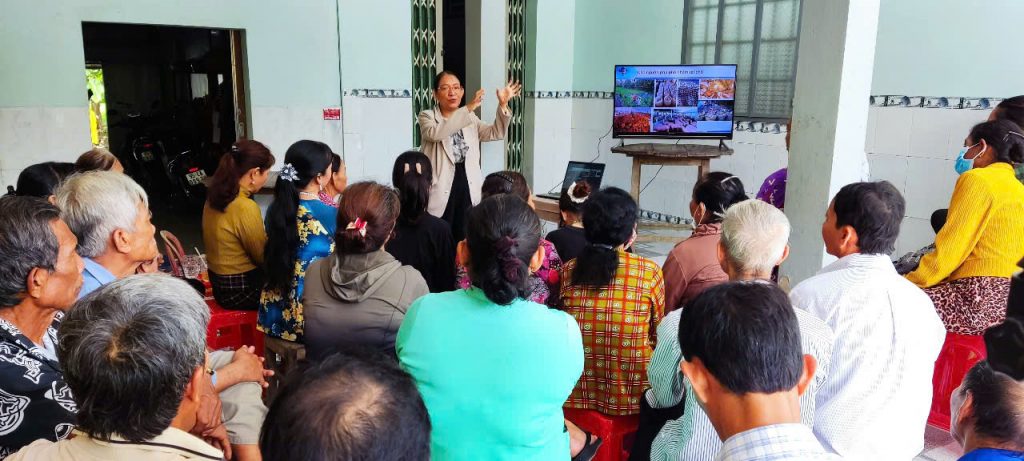
During a training workshop on bio-manure composting and creating growing media from agricultural and livestock by-products, held on 5th July, representatives from 80 households in the area had the opportunity to raise real-life questions and receive answers from Assoc. Professor Đỗ Thị Xuân – lecturer at Cần Thơ University. Some of the questions included:
“Why is it that when I fertilise my mango trees with hen and duck manure, the trees produce many flowers but no fruit?”
“Why do my vegetables’ leaves get burnt when I use hen and duck manure? I also gave the same manure to my neighbours, and they experienced the same problem. They asked me about it, but I didn’t know how to answer.”
“My melon plants looked fine in the morning, but by the afternoon, their leaves were all twisted. What does that mean, Miss?”
In addition, participants were guided on composting bio-manure by combining poultry manure with water hyacinth, as well as making growing media from common local agricultural by-products such as mushroom straw and water hyacinth. By doing so, farmers can reduce their use of chemical fertilisers, which are harmful to the soil, the environment, and human health, thereby contributing to environmental protection.
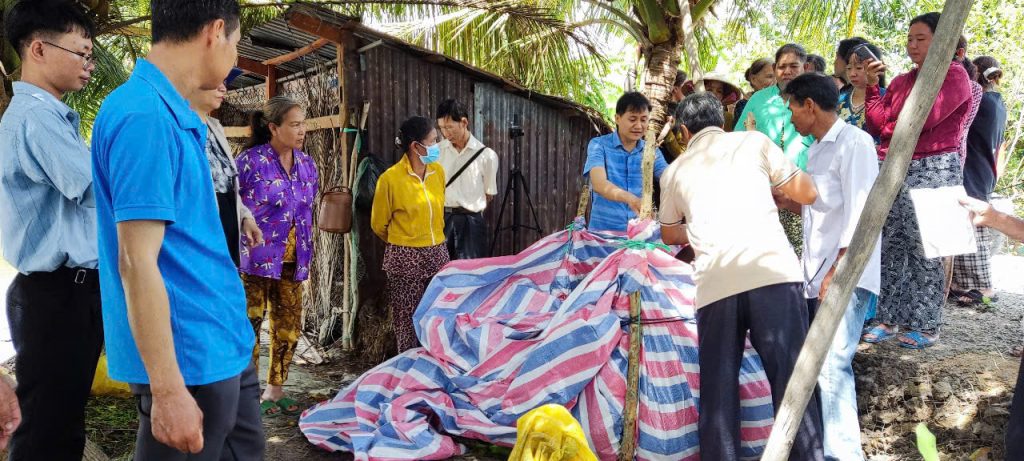
“Previously, our family raised only about 50 ducks. Since my mother-in-law received project funding, we’ve been able to expand our farming scale. Now we have 120 Siamese ducks, 80 mắt xéo ducks (a local breed), and even chickens. Before, I thought keeping the coop clean was enough. But sometimes I saw the ducks going into the mud and losing feathers, without knowing why. Through the workshop, I learned they were infested with mites, and I was taught how to treat and prevent the problem so the ducks can stay healthy,” shared Ms Tuyền from Lương Nghĩa Ward after attending the training.
In addition to training workshops, the Enhancing Capacity in Community-Based Climate-Change Adaptive Livelihoods project also focuses on activities that support education for children from disadvantaged families affected by climate change, raise awareness about climate change and environmental protection, and promote climate-change adaptive livelihood models currently being implemented in the community.
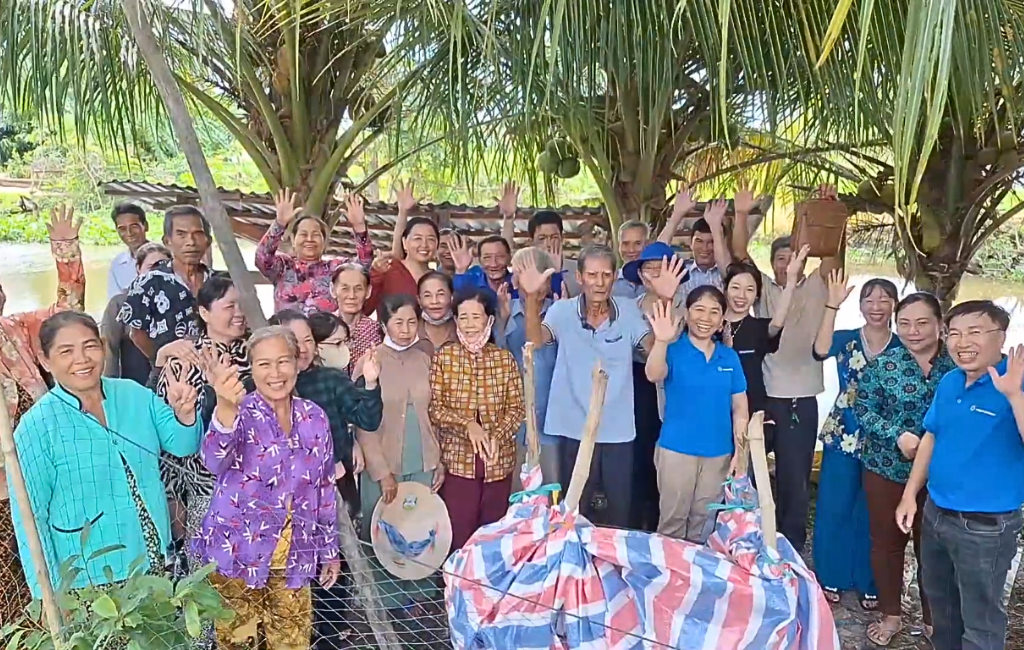
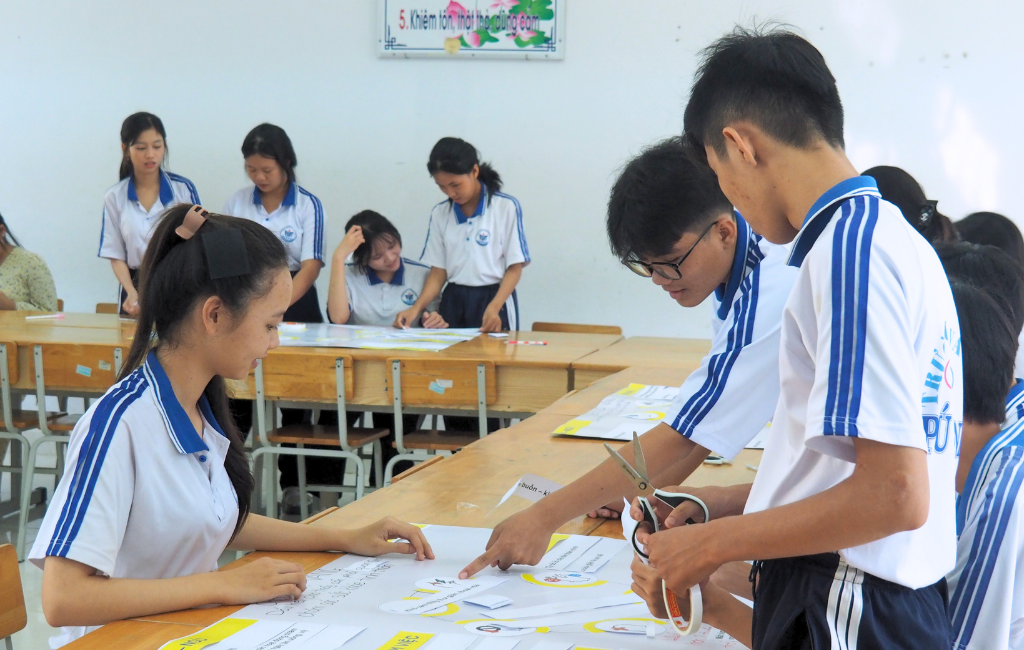
“Traffic light” of mental health

267 more dreams are taking flight on their university journey
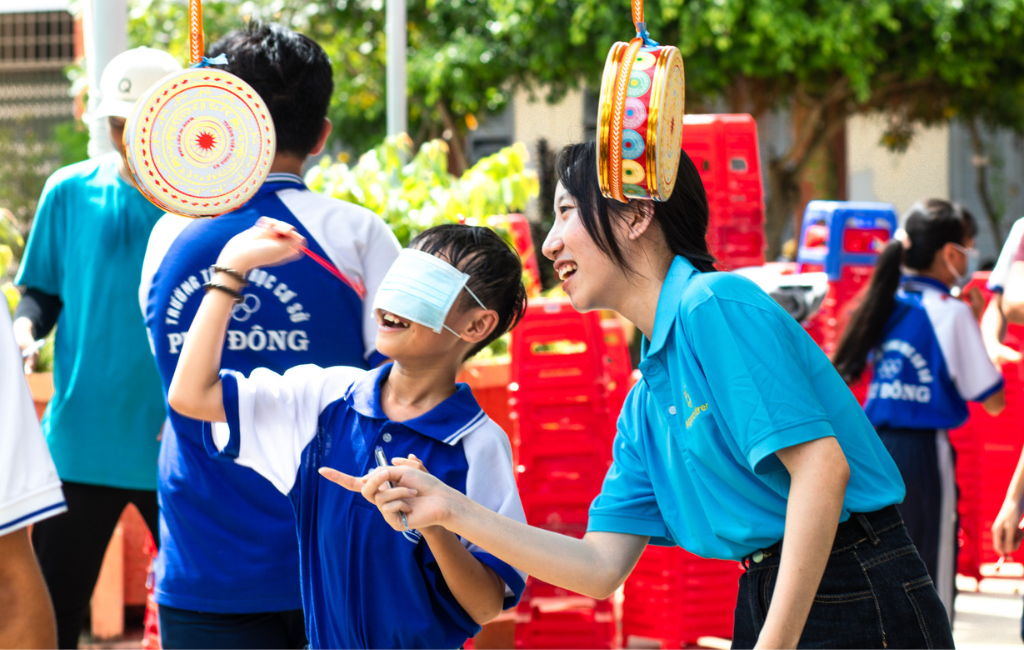
Mid-Autumn cheer with nearly 400 students in Đồng Tháp
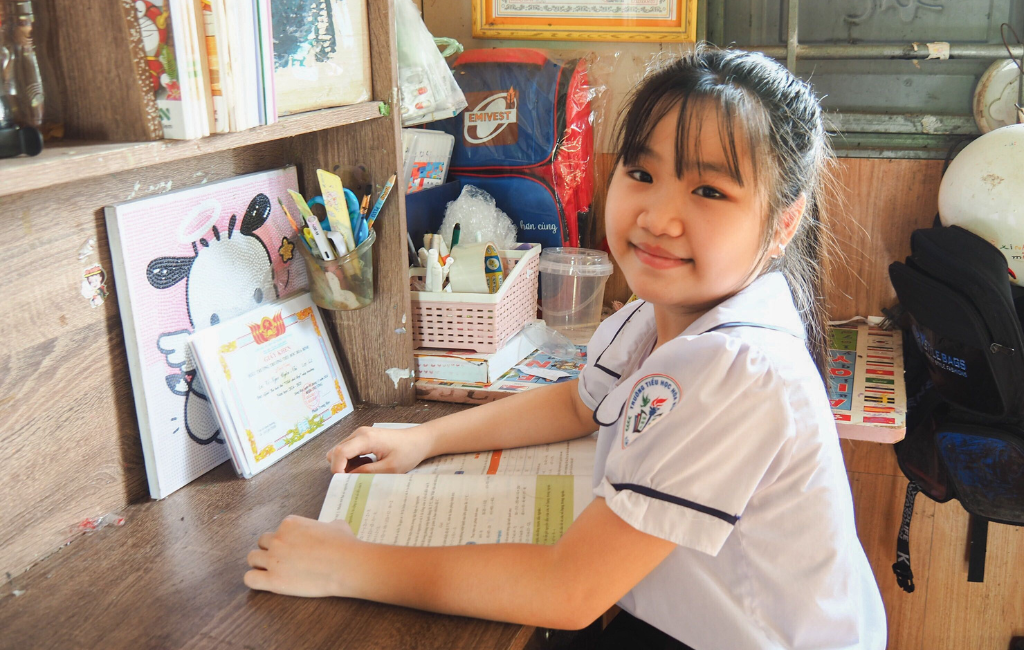
When a scholarship is worth more than just paying school fees
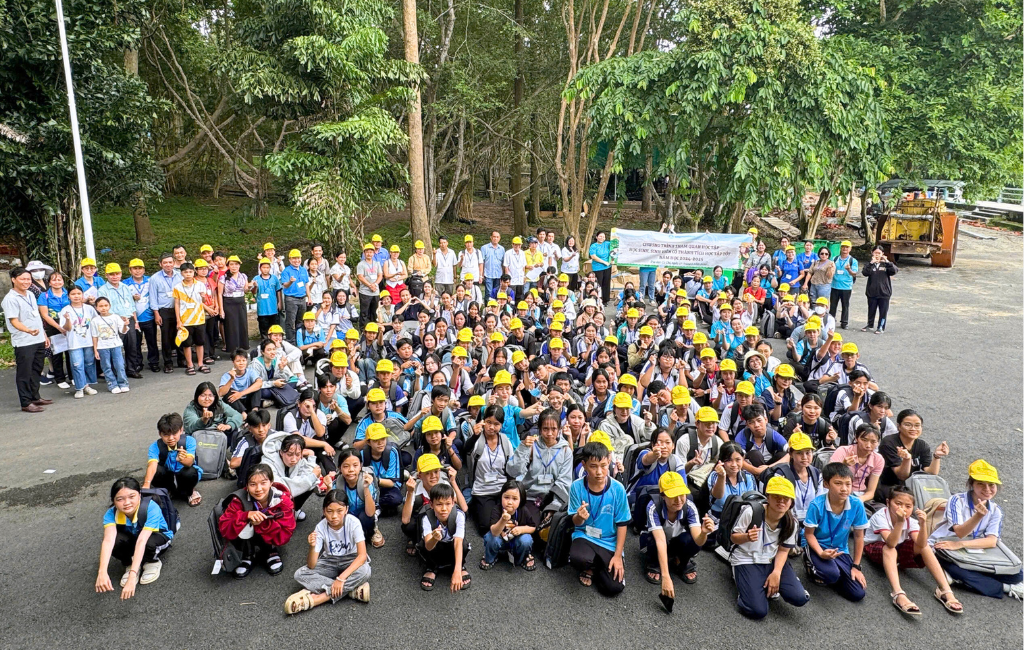
A day of living history in Củ Chi
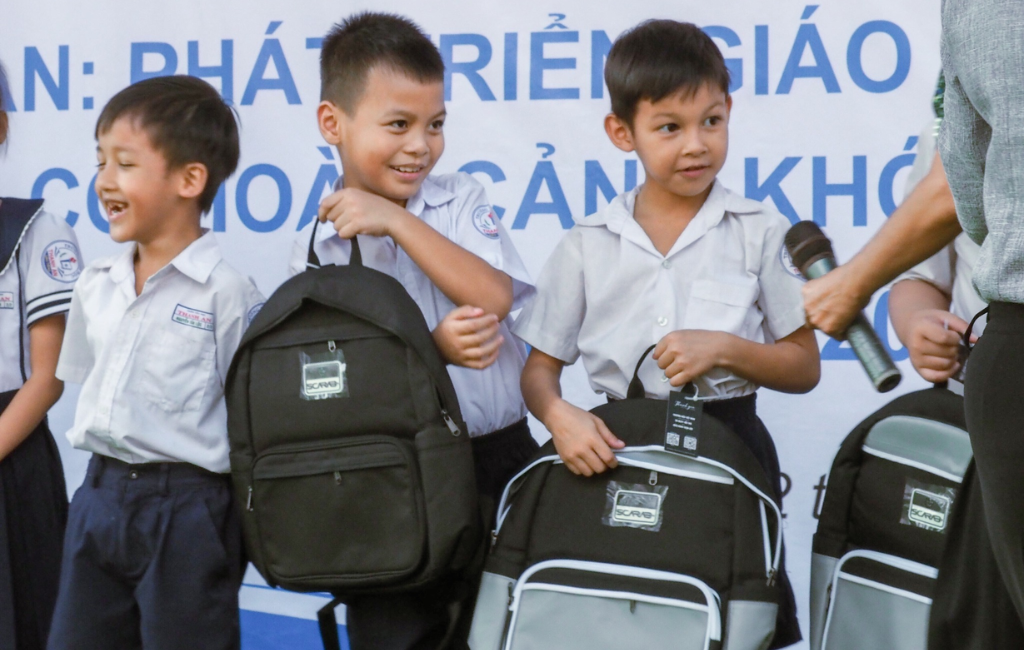
A Highlight Year for 100 Scholarship Recipients in Bình Dương
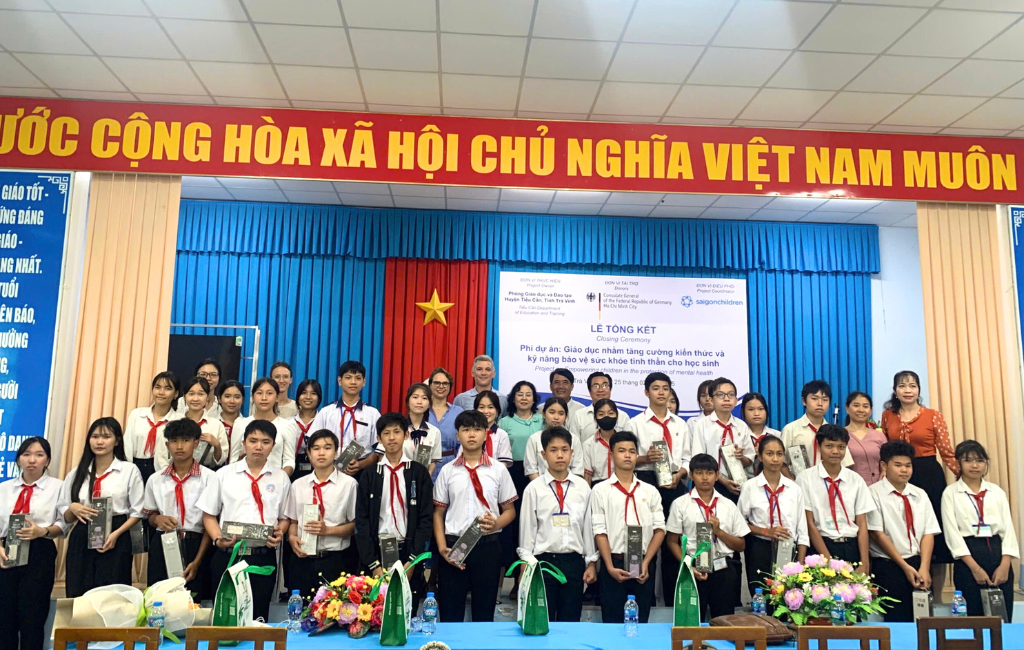
The German Consul General to Attend the Completion Ceremony of a Mental Health Project for Students in the Mekong Delta

Saigonchildren alumni’s Memory Station

Completing Another Three Years of Educational Support Project in Hậu Giang Province















